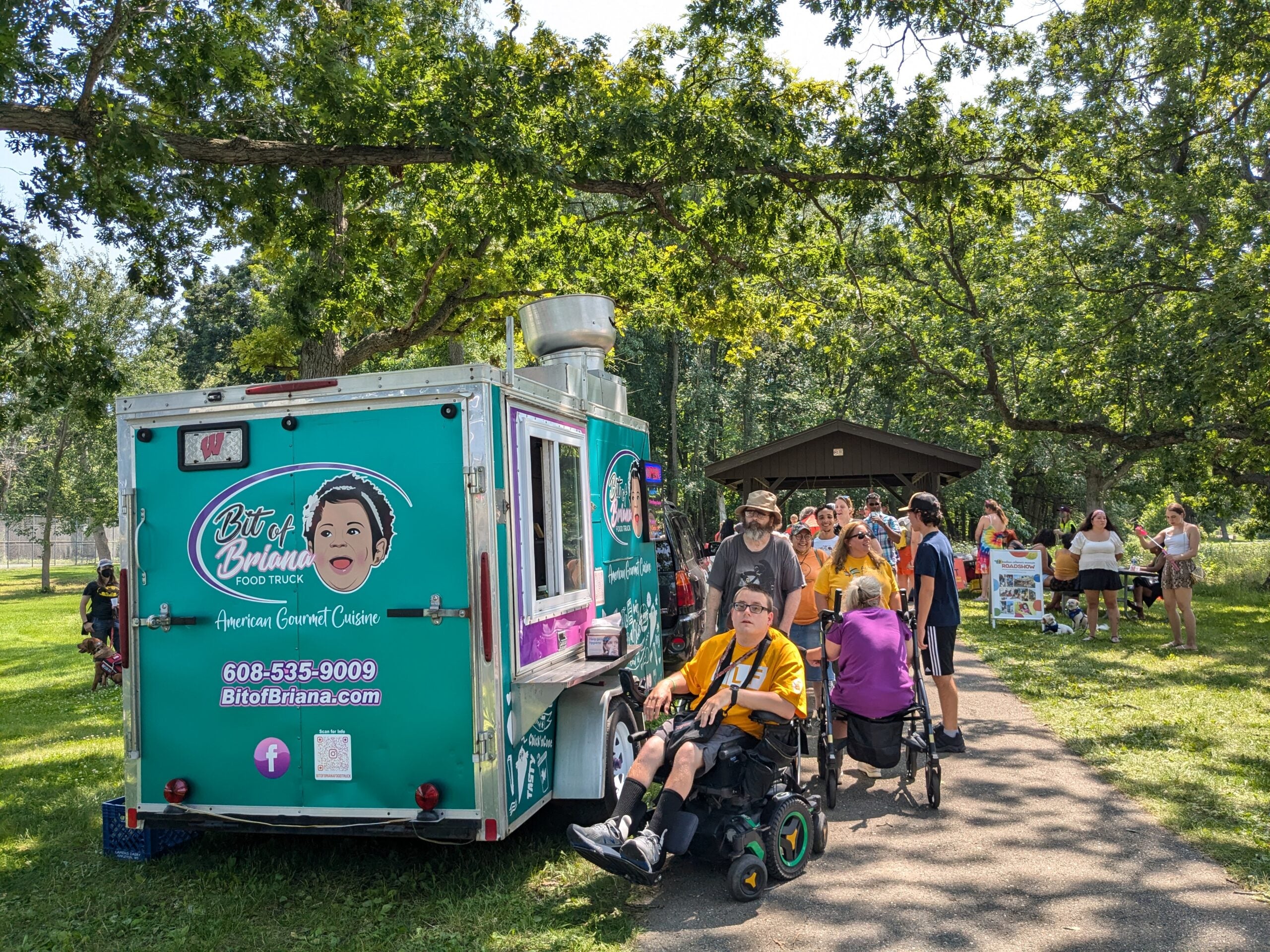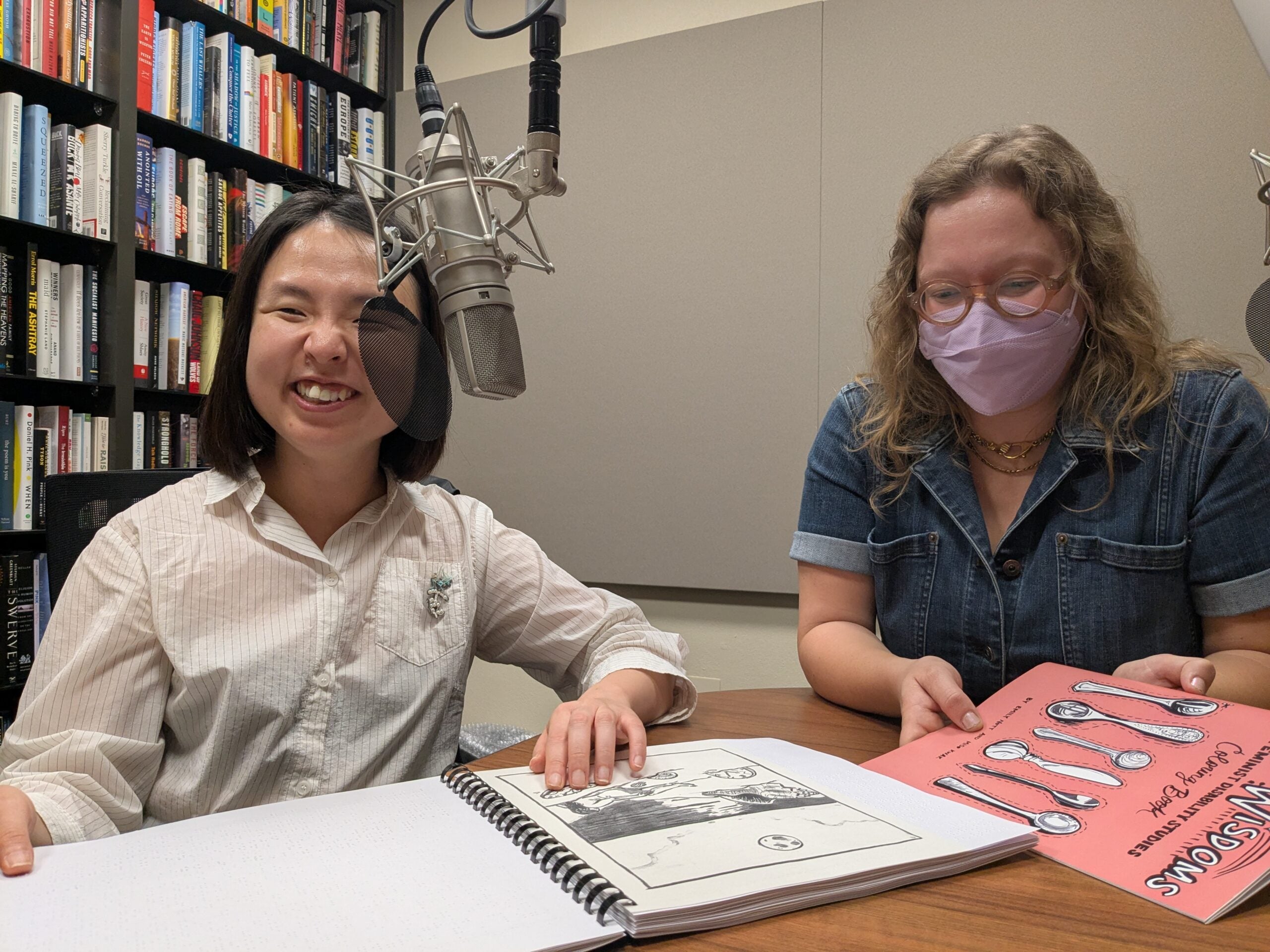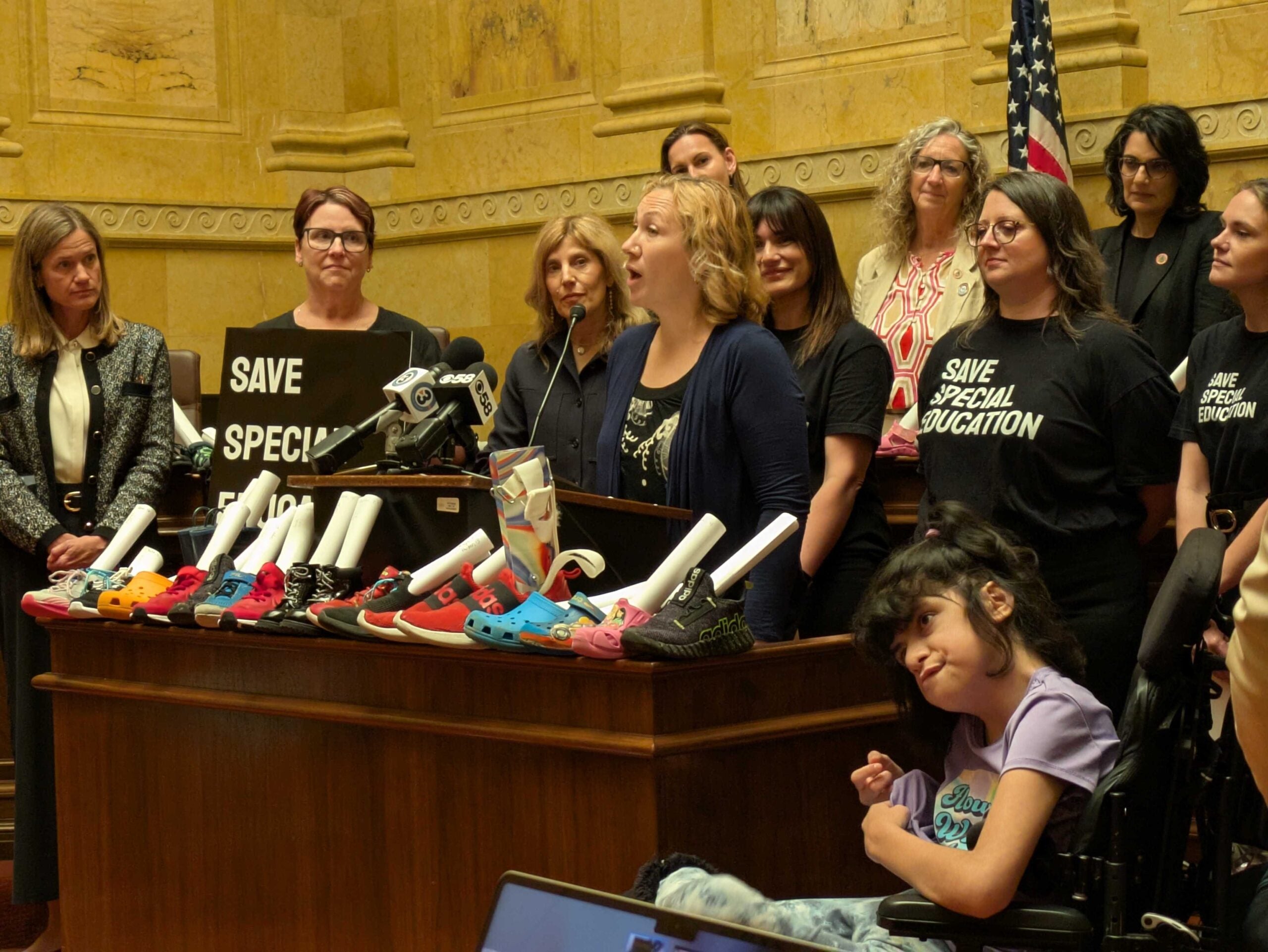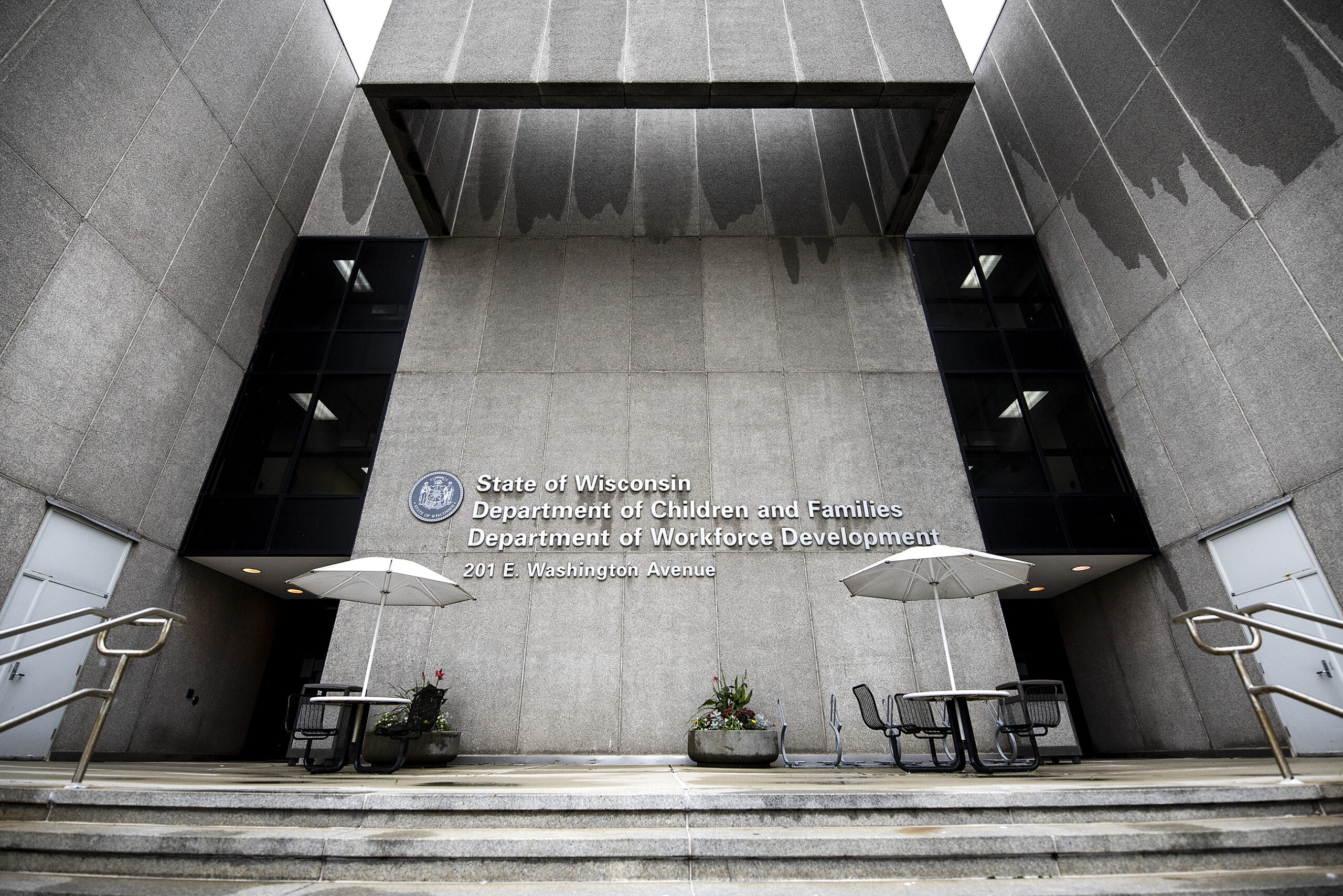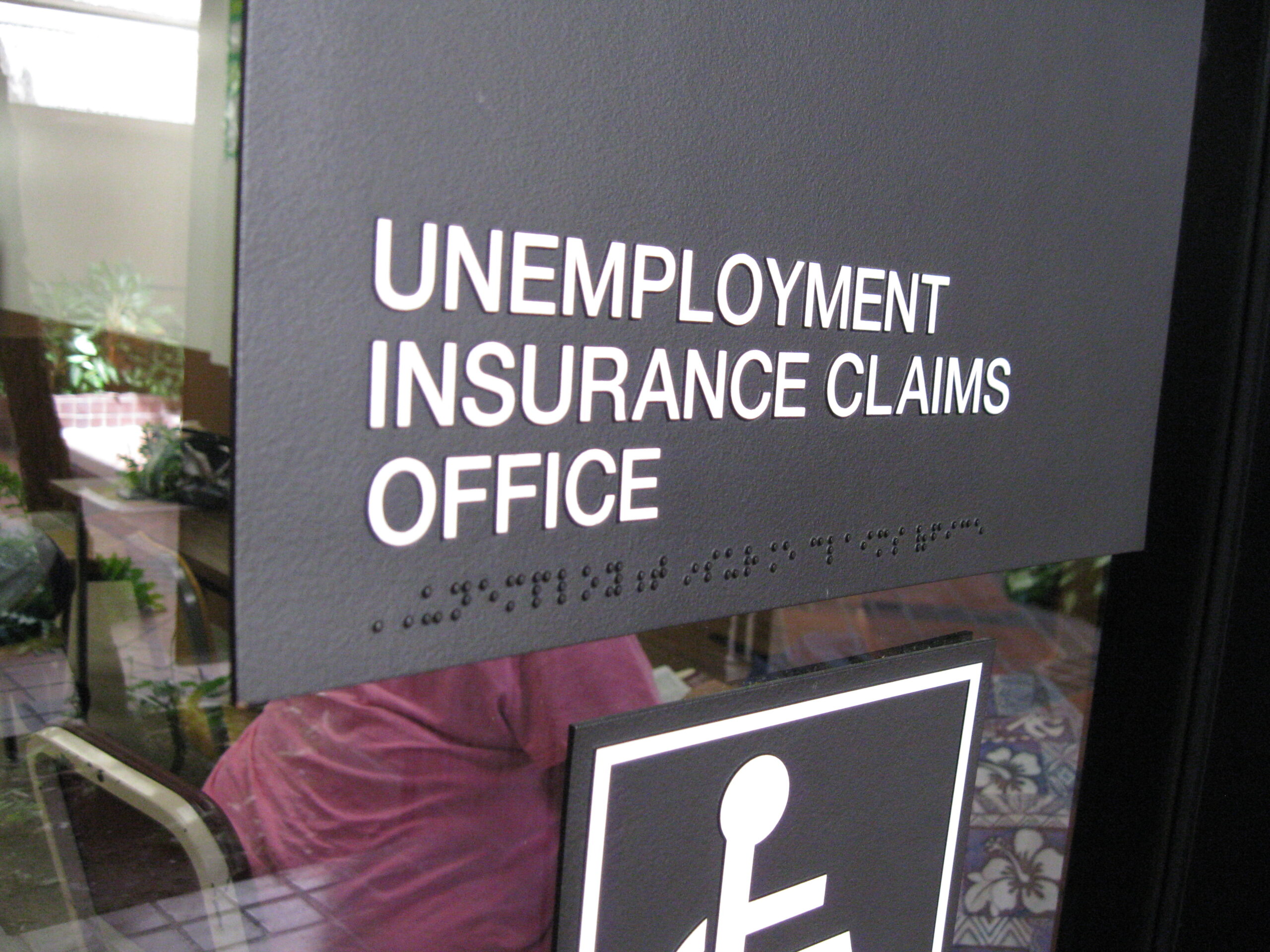Brelynn Bille of Waupun started using a wheelchair as a support for her disability during her sophomore year at the University of Wisconsin-Madison. That’s when she really began to notice the accessibility obstacles on campus.
One of her classes was held in a building with a heavy door and no push-button access. And the trouble didn’t end after entering the building, Bille told WPR’s “Wisconsin Today.”
“I had to go down a really steep slope into my classroom, to then sit at a designated table for my wheelchair away from all of my classmates with my head cranked back to look at the screen,” Bille said. “I just felt like I was a spectacle for everyone.”
News with a little more humanity
WPR’s “Wisconsin Today” newsletter keeps you connected to the state you love without feeling overwhelmed. No paywall. No agenda. No corporate filter.
And Bille wasn’t alone in her experience. As she began meeting with other disabled students that year, she learned that they were navigating similar struggles.
“Many of us had already considered leaving campus altogether because we felt so excluded,” Bille said. “We didn’t feel welcome here.”
Students with disabilities at UW-Madison are often sent to the McBurney Disability Resource Center. But the center is there to help with classroom accommodations and legal compliance, and Bille and her peers were looking for something more.
“We didn’t have a space to gather and socialize, to build community, to just find support within one another,” she said.
Together with a coalition of fellow disabled students, Bille successfully advocated for the creation of the Disability Cultural Center on campus. The center officially opened a community space in February 2023 where students can come to socialize and participate in group activities like “crafternoons.”
Bille’s efforts didn’t stop there. She was also instrumental in petitioning Gov. Tony Evers in 2022 to officially recognize July as Disability Pride Month in the state of Wisconsin for the first time. Now, Bille resubmits the paperwork for approval every spring.
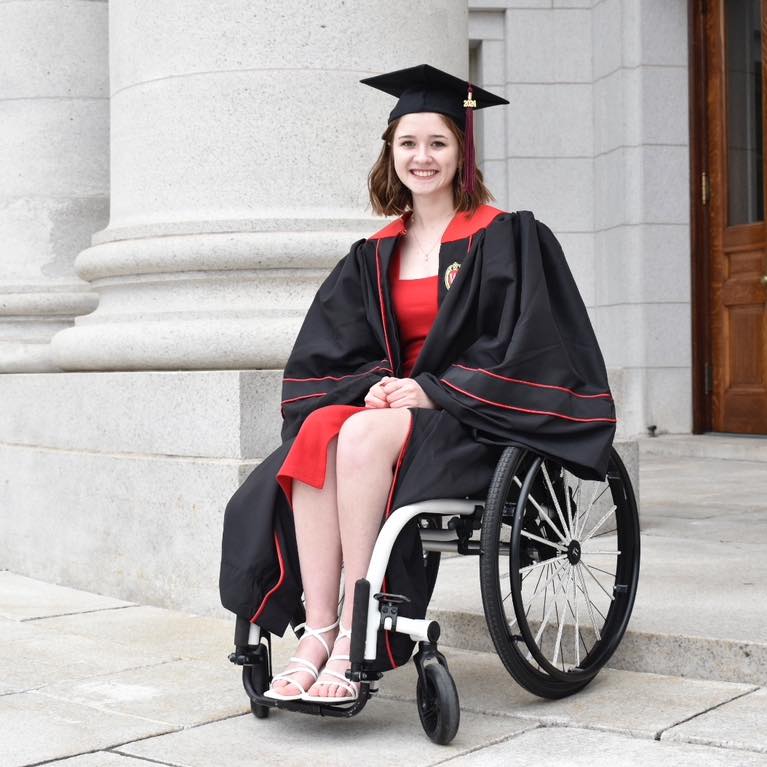
Disability Pride Month commemorates the passage of the Americans with Disabilities Act on July 26, 1990. One of Bille’s favorite ways to celebrate the month is to attend the Disability Pride Festival in Madison, which held its 11th annual event last weekend.
“The organizers of that do such a great job of trying to every year make it bigger and better and more inclusive, more accommodating,” Bille said.
At this festival, everything is accessible
This year, Madison’s Disability Pride Festival was held at Warner Park and drew in hundreds of visitors from around the state. The festival featured a stage for speakers and performers, a resource fair with information booths, exhibitor stands to buy artwork, a craft corner, adaptive sports and food carts.
Nicki Vander Meulen is a member of the Madison Metropolitan School District’s Board of Education. She has cerebral palsy and identifies as autistic.
“It’s nice to be at a festival where I don’t have to worry about if something is accessible, if I’m able to get around. Everything is here,” Vander Meulen said while waiting in line at the Bit of Briana food truck.
For Vander Meulen, one of the top issues facing the disability community is wage discrimination. There is a loophole in federal law that allows some employers to pay disabled workers less than the minimum wage, in some cases as little as 4 cents an hour.
“We want the basic rights and freedoms that everyone else has,” Vander Meulen said.
Not all disabilities are visible
Walking around the festival in colorful costume makeup and elaborate headdresses were members of the Mad City Sisters of Perpetual Indulgence. They’re a group of “21st century nuns” with a mission to spread joy through “wit, health education, fundraising and glitter,” according to their website.
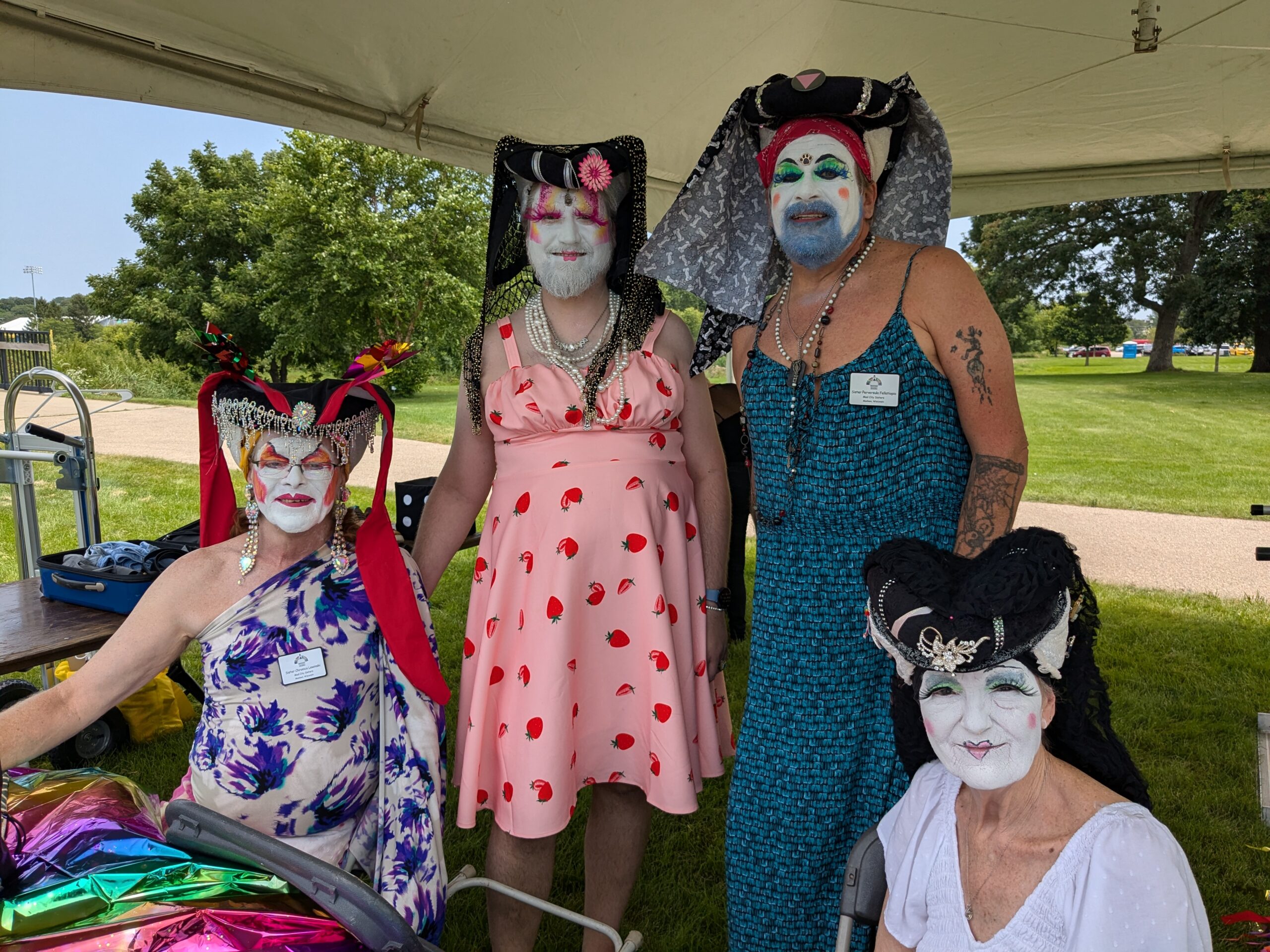
The Mad City Sisters volunteer at the Disability Pride Festival every year to help with setup and to bring their characteristic sass and cheer to the event. One of the members who goes by the stage name “Sister Chronica Lewinsky” attends the festival as both a volunteer and a member of the disability community.
“Having been alive long enough to have seen the world before the Americans with Disabilities Act, it’s a lot better now,” she said. “But there’s a lot of room for improvement.”
For example, Lewinsky would like to see the disability community have greater access to robust disability benefits and better health care.
As a person with multiple intersecting disabilities, Lewinsky wants people to understand the many forms that disability can take, whether it’s a physical disability, a cognitive disability, or another chronic health issue that may not be obvious when looking at a person.
“Just because I look like I don’t have a disability doesn’t mean I don’t,” she said. “Not all disabilities are visible.”
A teen fights for disability justice
Near the stage, 14-year-old Kitty Trevedi was tabling a booth for their social media account Disabled Teens Matter. Trevedi started the account after UW-Madison unenrolled them from a summer program for high schoolers due to concerns about accommodating Trevedi’s disabilities.
The incident sparked a wave of disability activism on campus. Trevedi and their mom drove an hour from Beaver Dam to Madison every day for most of July to protest.
“(I was) terminated because I didn’t fit into a box like they wanted,” Trevedi said.
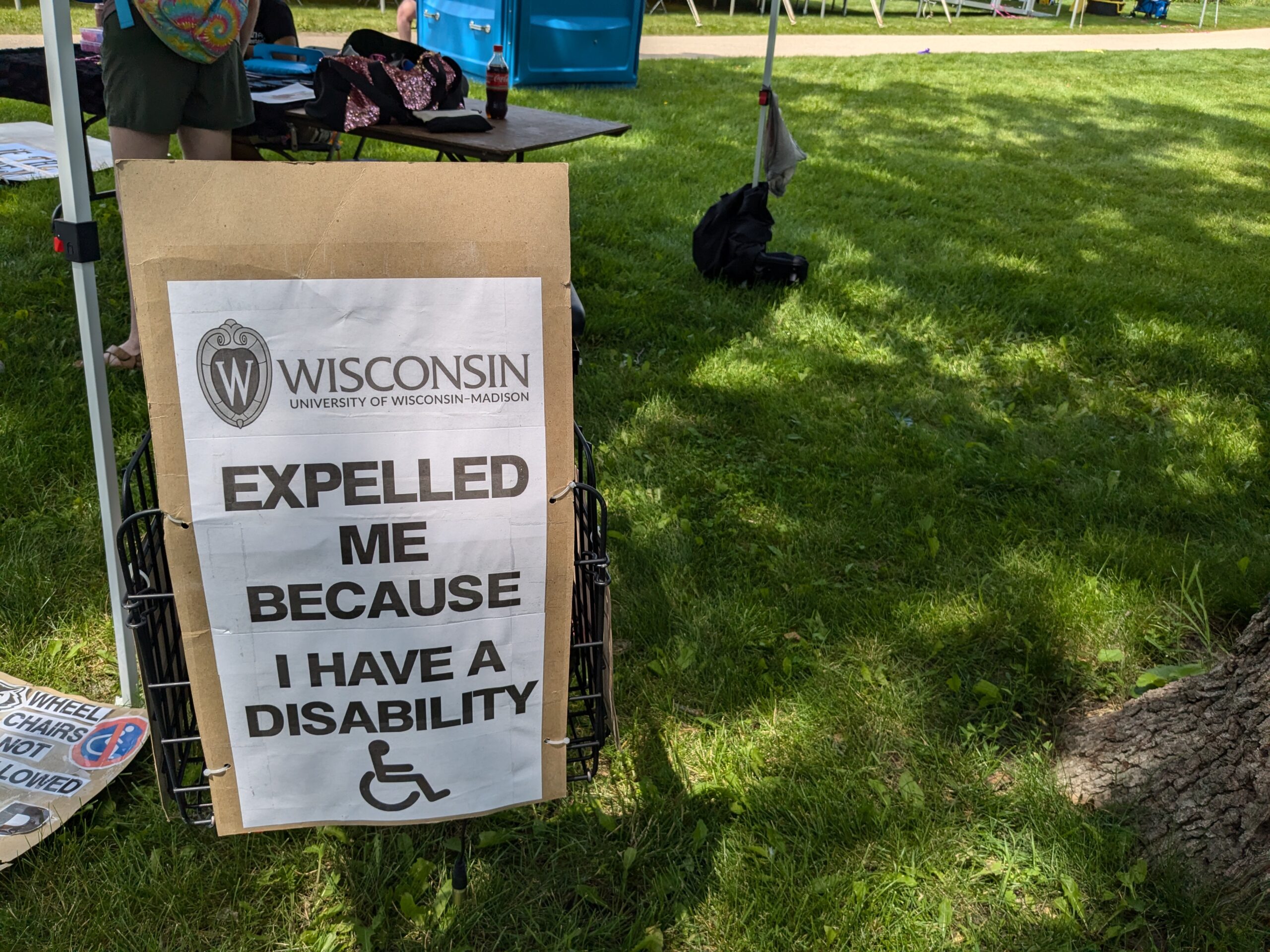
The university maintains that Trevedi’s termination from the program was due to required accommodations paperwork being submitted late. The Trevedi family has disputed this claim, saying that they went through all the proper channels to secure necessary support.
To Kitty Trevedi, disability pride is “pride in the fact that you’re not in that box,” they said. “You’re not ‘normal.’ You’re you, and that’s wonderful.”
A joyful festival
Over at the tennis court, the group Wheels & Heels showcased the talents of para dancers (formerly called “wheelchair dancers”). Among the performers was Martha Siravo from Madison, who will be representing Wisconsin on Team USA at the Para Dance Sport competition in Detroit later this month.
“I think dance empowers people, and that’s what I love about it,” Siravo said.
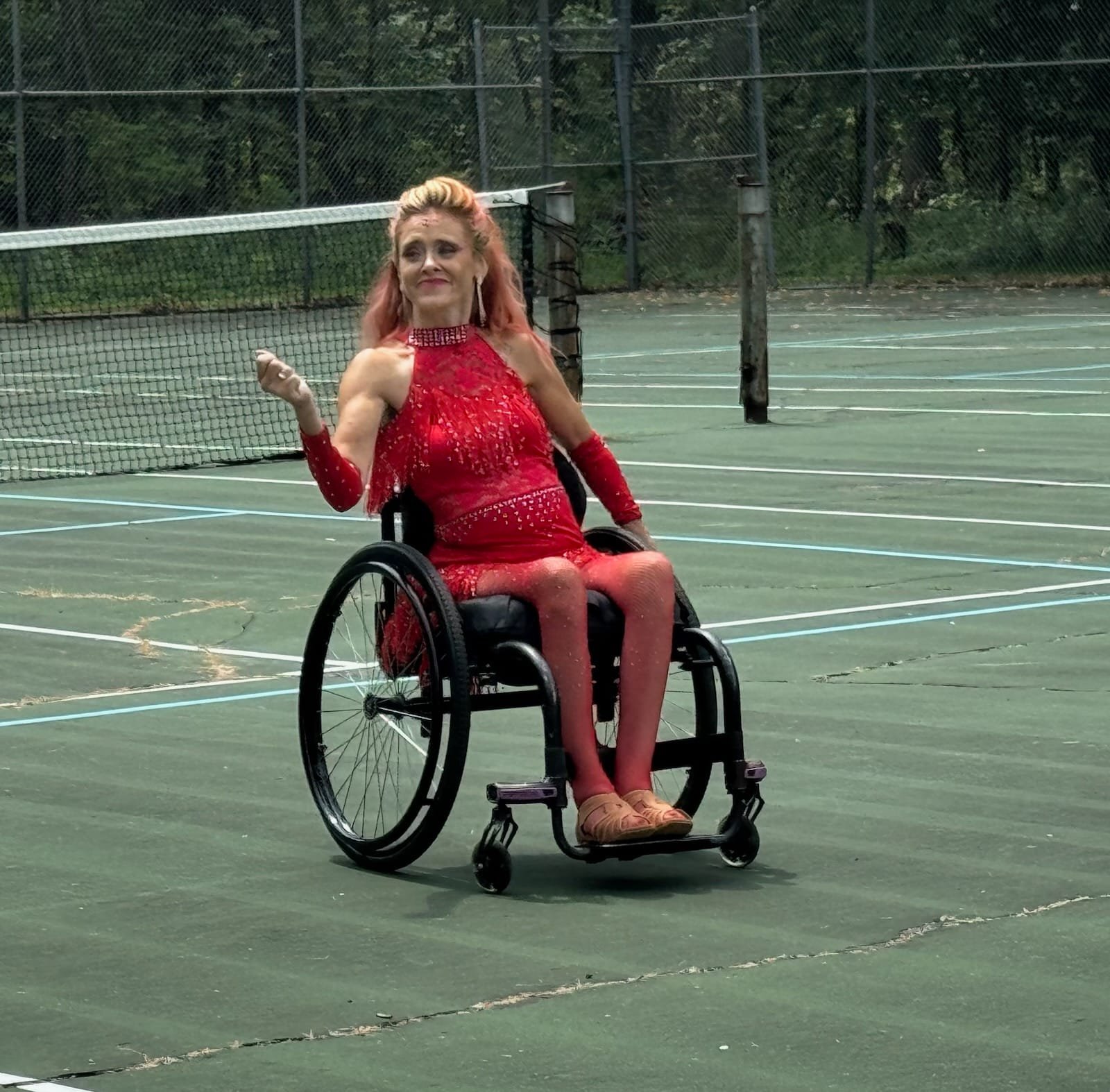
Siravo is also a founding member of the group Madtown Mommas and Disability Advocates, which provides support to parents of special needs kids who are navigating the public school system.
Siravo said that she sees disability from two sides: as a member of the community and as an advocate for her child.
“My access needs and my daughter’s access needs are not always singular,” she said. “I’m always troubleshooting in my head: ‘How will this work for both of us?’”
The Disability Pride Festival is one place where Siravo doesn’t have to worry about all that. And for her, the festival is more than just an accessible space — it’s a unique opportunity for everyone to feel supported and celebrate their identity.
“I think it’s a place for people with disabilities to … experience self love,” she said. “It’s a place of joy.”

